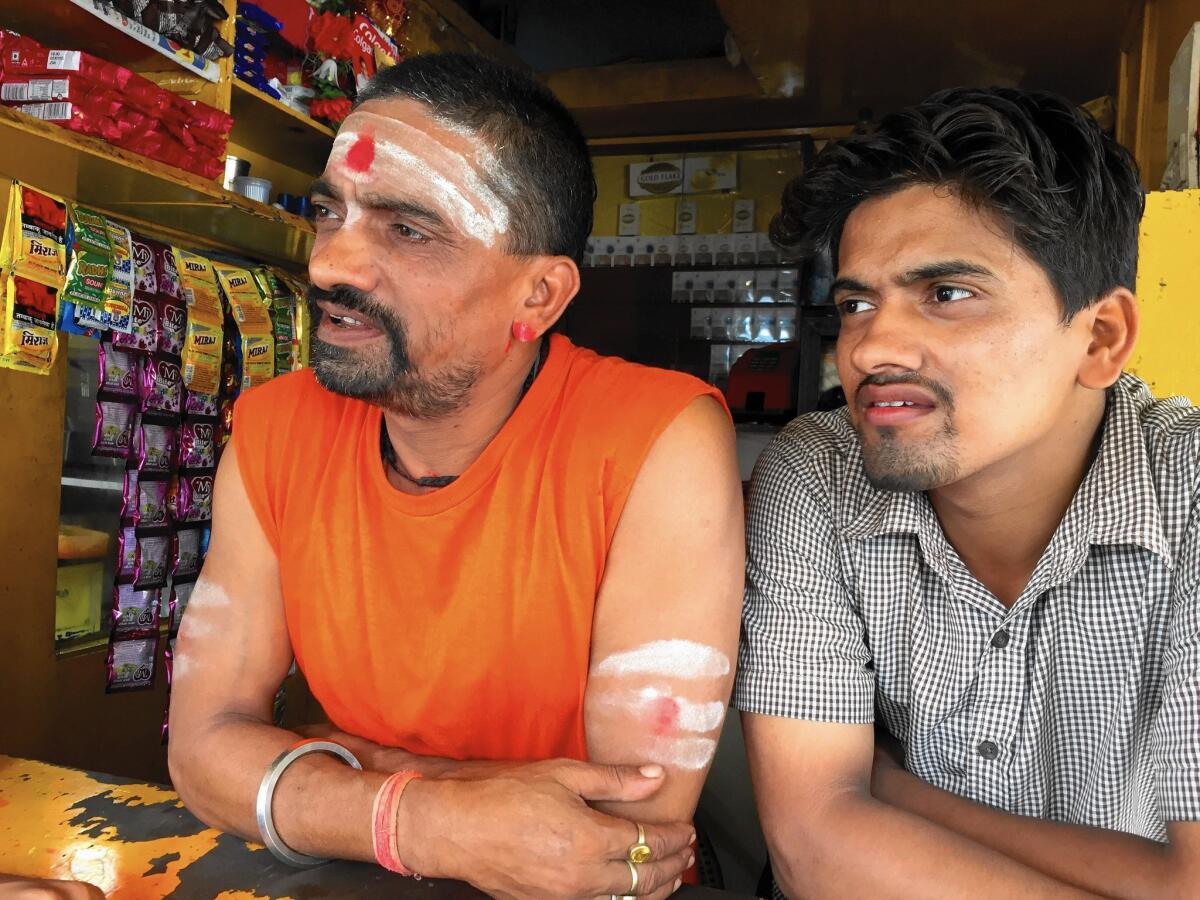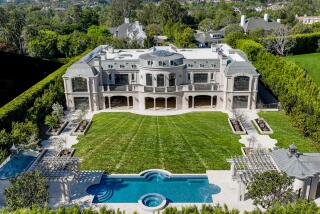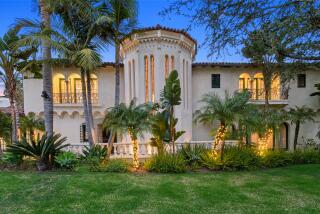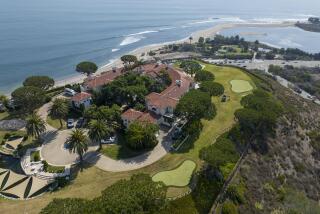A Mumbai palace with a past is back in Indian hands, for a record price

- Share via
Reporting from MUMBAI, India — When one of India’s wealthiest families announced it had purchased the oceanfront mansion from the U.S. government for the record-setting price of more than $110 million, neighborhood denizens were pleased.
“It’s a very happy occasion for all of us,” said V.S. Chaubey, 46. “There’s nothing more joyous than getting an esteemed neighbor.”
Chaubey sells cold drinks and snacks from a bright yellow kiosk just steps from the iron gates of the mansion long known as Lincoln House. He and his son sleep above the kiosk, in a 6-by-8-foot alcove that is reached by climbing through a cutout in the ceiling next to the cigarette display.
Lincoln House’s new owner, pharmaceutical magnate Cyrus Poonawalla, will have considerably more space. The rambling, 50,000-square-foot palace, designed by a British colonial architect and set back from the Arabian Sea by a grove of graceful palms, served for more than five decades as the U.S. Consulate in Mumbai, and before that as the home of a minor Indian maharajah.
Poonawalla, ranked by Forbes magazine as the country’s ninth-richest person, concluded what local media reported was India’s costliest ever residential real estate deal, even though he has no plans to live there full time. The family business is based three hours away in the city of Pune. His son, Adar Poonawalla, who spearheaded the purchase, said he spends about every other weekend in Mumbai.
Still, as a pied-a-terre, it seems to suit the family’s lifestyle. The Poonawallas race horses at Mumbai’s Mahalaxmi race course, a short drive away. And they will have plenty of wall space to display their growing collection of Impressionist paintings, including works by Monet, Picasso and Renoir.
Previous prospective buyers had been put off by the building’s heritage status, which prevents major renovations. But it took just a half-hour tour for Adar Poonawalla to decide to make an offer at a closed auction this year.
“We always dreamed of having such a property, which is an iconic historical landmark,” the 34-year-old British-educated heir to the Serum Institute, the vaccine manufacturer his father founded, said by phone from Pune. The company is among the world’s largest producers of measles and polio vaccines, exporting to more than 100 countries.
“This kind of place comes along once in 10 or 20 years. That kind of space overlooking the sea, in Mumbai, that’s very rare.”
Space is perhaps the most precious commodity in the city formerly known as Bombay, a commercial hub of 12 million people crammed ever more tightly into a sliver of land along India’s western coast. As an economic boom has generated massive wealth for the Indian upper class, Mumbai’s tycoons have been forced to build upward, the most famous example being the 27-story, $1-billion single-family residence belonging to the country’s wealthiest man, Mukesh Ambani.
Even the U.S. government eventually outgrew Lincoln House, which it named for the 16th president after acquiring the two-acre property in 1957 from the royal family of Wankaner, in Gujarat state. In 2011 the consulate moved into a custom-built fortress in the Bandra-Kurla Complex, a new master-planned business district.
When Lincoln House went up for sale, Digvijaysinh Jhala, a descendant of the Wankaner family, took one look at the asking price and lamented to the Times of India, “We sealed one of the worst deals of selling a royal mansion.”
The personal palaces stand in stark contrast with the shanties and slums where nearly half of Mumbai lives. Little separates the rich and poor geographically. Around Lincoln House, in an exclusive area of old-money, sea-facing apartments, fruit sellers and day laborers sleep in a warren of shacks tucked into an alley, out of sight from the main road.
“I’m actually a little fearful, the way the media have been carrying around the story about the sale price,” said Adar Poonawalla, who has spoken at length about the deal to multiple news outlets. “I’m actually thinking of beefing up our security.”
His modest new neighbors greeted the news with a mixture of nonchalance and muted admiration.
“He owns half of Pune. He has to invest his money somewhere,” said Jaffer Sheik, a 65-year-old selling bananas under a tree. In a city of tycoons and movie stars, as well as the struggling masses, few would acknowledge being impressed by that much wealth.
“Rich people are our main customers,” Sheik said, then specified that “they send their servants.”
Across the street, Chaubey said he instinctively liked the Poonawallas, who, like his boss, the owner of the kiosk, are members of the Parsi religious minority. Chaubey came to Mumbai several years ago from Varanasi, a city sacred to Hindus. His forehead and arms were smeared with white tilak paste, a mark of piety.
When Chaubey began speaking about Lincoln House, his son Sandeep, 20, who was resting between shifts at the pharmacy where he works, leaped down from the alcove. The pair ticked off the attributes of the property that they’d heard about: the swimming pool, the tennis court, the one-acre garden.
Finally, Chaubey made a plea to the new homeowner.
“If he needs help in his new house,” he said, “I’m ready to be hired for any job.”
More to Read
Sign up for Essential California
The most important California stories and recommendations in your inbox every morning.
You may occasionally receive promotional content from the Los Angeles Times.











